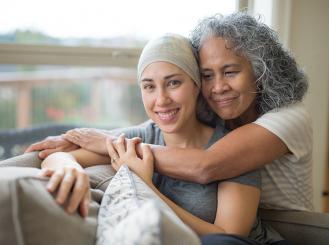Oct 23, 2017
By Robert G. Johnson, MD, PhD, and Dana L. Dornsife
“Not enough patients!”—a situation that investigators and sponsors have lamented for decades—results in trials that are slow to enroll or even fail to reach completion. There are many causes of low participation rates.1 A recently identified and major contributing factor to low enrollment is the financial toxicity of cancer clinical trial participation (reviewed at the ASCO Roundtable on Addressing Financial Barriers to Clinical Trials Participation, the findings from which will be presented in a forthcoming white paper).
Ancillary financial costs to the participants, an underappreciated deterrent to clinical trial participation, cover the spectrum from simple to complex, from taxis or gas and parking to airfare and long-term lodging for a remote trial that offers the best study opportunity for the patient. But no matter the amount of the out-of-pocket costs involved, if a patient can’t afford them, they will not be participating in a trial.
Unfortunately, many sponsors of clinical trials and the clinical sites themselves are often wary of providing financial support given the language set down in regulatory documents and issued guidance, warning against anticipated financial benefits which may create “coercion or undue influence or inducement.”
For over a decade, Lazarex Cancer Foundation has been providing reimbursement for well-defined ancillary costs to patients who otherwise would not be able to participate in or remain on a cancer clinical trial. With strict adherence to Federal Poverty Guidelines, Lazarex maintains that covering ancillary costs of a clinical trial, as reimbursement, does not constitute coercion, undue influence, or inducement. Lazarex maintains that reimbursement of these costs can be considered to hold to the principle of distributive justice: that is, by offering an opportunity for those upon whom the costs of participation would place an undue burden, reimbursement does, in fact, decrease their vulnerability, and ensure and protect their rights to equal treatment and welfare. In this defined case of reimbursement, coercion (“involving a threat that makes a certain choice irresistible”)2 or undue influence (“when the offer of something good distorts people’s reasoning abilities to such a degree that they undertake something that exposes those to unreasonable risks”)3 are not applicable.
Since 2007, Lazarex has supported reimbursement of patients’ ancillary costs, now at 39 of the National Cancer Institute Comprehensive Cancer Centers and at 77 other institutions. In addition, the foundation funded and completed a 3-year pilot program, the Lazarex–Massachusetts General Hospital Cancer Care Equity Program.4 Composite data indicates that reimbursement of ancillary costs improves clinical trial accrual speed and overall enrollment, increases patient retention in the trial, increases minority participation, dramatically improves patients’ sense of well-being, and is done at a very modest cost. Recently, Lazarex has launched IMPACT (Improving Patient Access to Cancer Clinical Trials), with the ultimate goal that within 10 years, the barrier of ancillary costs will be removed and will no longer be a determining factor in whether a patient decides to enroll in a cancer clinical trial.
It is not only patients who can benefit from clinical trials. The elephants in the room in this discussion are the sponsors who are also helped, by faster enrollment and more diverse participation (and ultimately, of course, the general population who are aided from the more rapid testing of new cancer treatments). More precise guidance would be very useful in allowing appropriate stakeholders in the clinical trial process to provide ancillary financial support to level the playing field for patients who want to be enrolled, and indeed be retained, in a cancer clinical trial.
Lazarex recognizes that there is unclear written guidance in this area and is working closely with Congress, the U.S. Food and Drug Administration, Institutional Review Boards, and state governments to communicate in clear, unambiguous language that reimbursement of ancillary costs does not constitute undue influence or coercion. One example is the draft Pennsylvania Senate Bill 576, which states, “Reimbursement for travel and ancillary expenses shall not be considered coercive or exerting undue influence to participate in a trial; instead reimbursement shall be considered a means to create parity in clinical trial access and remove a barrier to participation for financially burdened patient-subjects.”5
Ancillary costs of clinical trial participation limit the participation of patients who have financial constraints. It is time for all stakeholders in the cancer clinical trial process to join together and ensure that there is equitable access to cancer clinical trials for every patient with cancer. It is the right thing to do. And it is long overdue.
Dr. Johnson is the chief medical officer of Lazarex Cancer Foundation. He has been an ASCO member since 2005. Ms. Dornsife is president of Lazarex Cancer Foundation. She joined ASCO in 2015.
References
- Wong YN, Schluchter MD, Albrecht TL, et al. J Clin Oncol. 2016;34:479-87.
- Hawkins JS, Emanuel EJ. Hastings Cent Rep. 2005;35:16-9.
- Emanuel EJ. Am J Bioeth. 2005;5:9-13; discussion W8-11, W17.
- Nipp RD, Lee H, Powell E, et al. Oncologist. 2016;21:467-74.
- Pennsylvania Senate Bill 576, Regular Session 2017-2018. “Cancer Clinical Trial Access for Pennsylvania Patients (TAPP).” Accessed Sept 6, 2017.

